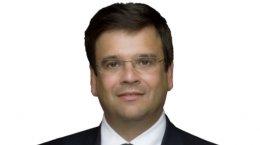Small & medium enterprises (SMEs) may include puny firms across diverse sets of businesses but put together, they pack a punch and comprise a little less than half of the total industrial output and a large chunk of employment in the country. So it is not surprising that SME and mid-market segments drive majority of the growth capital investments from private equity firms operating in India.
But, what are the learnings from the PE investments over the past decade, what are the issues that must be addressed by both PE investors and SME entrepreneurs and what is the way forward for catapulting the SMEs to the next level? These and many more relevant questions were raised and answered at the second edition of VCCircle’s SME & Mid-market Investment Summit 2012, held on January 25 at Gurgaon. The summit brought together participants and speakers across the spectrum of successful & budding entrepreneurs and PE investors.
Gopal Srinivasan of TVS Capital, who moderated the first session on scaling up SMEs in India, set the tone when he noted how it made immense sense for PE firms to invest in SMEs because the risk perception in such emerging firms would be tougher and thus, a professional investor like a PE firm would be more suitable for the sector.
Rajesh Puri, CEO of the radio taxi service firm Meru Cabs, said that institutionalising the business would be one of the key elements of scaling up for SMEs in India and a PE investor would help one do that.
Citing the example of Meru Cabs, which is backed by India Value Fund, he also shared his views on how a PE investor could help a small firm in moulding its business model and scaling up, thereafter. “Many a time, as a promoter, we just have a concept – a great one at that but nevertheless, only a concept. But more details need to be added to scale up that concept into a full functioning company. It might require some business details or organisational refinement or as happened in our case, a particular technology that is suitable for the business, but you are not aware of it.”
The discussion then moved on to the ideal situation of co-existence and how a PE firm and the promoter of an SME should learn to adapt to each other.
According to S Harikrishnan, Partner of Avigo Capital Partners, promoters should decide beforehand whether they want a silent partner who just brings in the capital or an active PE firm, to avoid problems after the investment is made.
The panel also shared views on the pros and cons of having an active PE investor and to what extent the investor should be involved operationally as PE firms typically pick a minority stake in portfolio companies.
Arun Uday, director at Headland Capital, said, “If the end goal is to create a lasting equity value, the PE is the first step towards it. You can treat it as dress rehearsal for IPO as it is the first outside participation in the company and a lot depends on it.”
Srinivasan of TVS Capital summed up the session by saying SME promoters should choose the PE partners carefully; both the investor and the investee should build the trust factor for smooth operations and finally, entrepreneurs should hold all the aces.
In the next session, moderated by Imran Jaffar of Gaja Capital Partners, panellists discussed the topic of creating value through business transformation.
Tushar Mehendale, managing director of ElectroMech Material Handling Systems which was funded by Motilal Oswal PE last year, shared his insights regarding how the company scaled up from revenues of around Rs 3 crore to Rs 200 crore in the past one decade. “There had been a lot of developments which were planned and at the same time, many things happened extempore. One has to have an open mind,” he stated.
OP Manchanda from Dr Lal PathLabs also shared his views on scaling up businesses and said that innovation would be the key and so would be differentiation. “Business transformation should be phased, starting with focus on the internal organisation, followed by external changes,” he said.
The next session, moderated by Sanjiv Singhal, MD of Banyan Tree Capital, discussed issues surrounding how and whether to raise PE money, valuation and rights. The age-old question inevitably came up – how important valuation consideration should be when the primary objective is to raise funds for growth – and Nikhil Khatau of Mayfield Fund Advisors made a relevant point for entrepreneurs. “The opportunity cost of not raising capital due to valuations could be significantly high to affect a company’s growth,” he observed.
Khatau has also said that professionals at the CXO level play an important role in a company and if promoters are not ready to get high quality professionals on board, it will discourage the investors to back them.
From the promoter’s perspective, Amul Gabrani of Tecpro Systems pointed out that PE firms were sometimes extremely demanding. “It took us more than one year to get comfortable with the PE investors but now we have learnt to trust them,” he commented.
The panellists also discussed issues related to the likely modes of exit for PE firms and whether listing on stock exchanges (including the upcoming SME exchange) could be considered as an alternative to PE funding.
But Khatau of Mayfield said, “Many Indian SMEs we see today are not yet ready for the public market.”
Chandrasekar Kandasamy, Managing Partner at ePlanet Ventures, said, “We feel that companies with less than Rs 500 crore or $100 million in revenues should not go for an IPO in the first place.”
Talking about exit strategies, Sandeep Reddy, founder & managing director of Peepul Capital, said that his investment firm had not done any IPO exit till date and all the exits had been through strategic sales or secondary sale of equity to another financial investor. “We see more secondaries happening in the future,” he added.
The event also saw entrepreneurs like Sanjay Vakharia (founder and director of Spykar), K L Bansal (CMD of Dee Development Engineers Ltd), Saju Chacko (MD of Caravel Logistics) and Amit Bakshi (MD of Eris Lifesciences Pvt Ltd) share their experiences in growing up as a company and the role their PE investors played in tapping new opportunities to expand.





